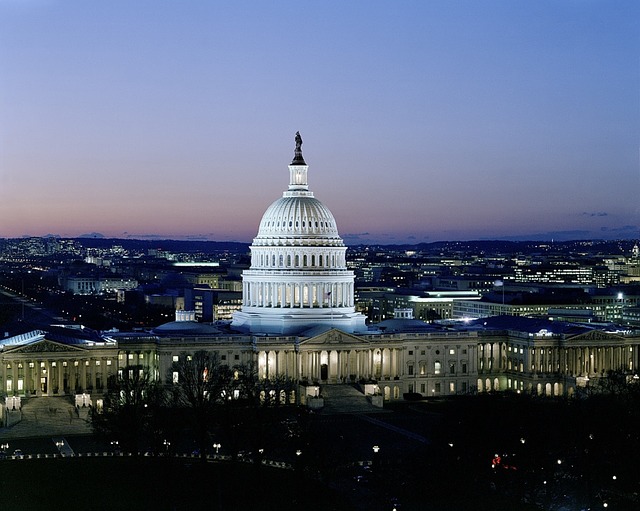Bad policy decisions, political acrimony and poor staffing were to blame for the alarming number of deaths in nursing homes, experts and legislators said in a U.S. House of Representatives hearing held on Wednesday.
As Democratic and Republican lawmakers pointed fingers at each other, they agreed that among the many deficiencies, the must-admit policy deeply contributed to deaths in nursing homes.
Rep. Brad Wenstrup (R-Ohio), chairman of the House Select Subcommittee on the Coronavirus Pandemic, said wrong-headed policies were also guided by over reliance on China to supply medications and personal protective equipment (PPE) as well as scarcity of scientific data and “political motives” in spite of the data.
“The goal of this select committee is to have a better path forward, to admit to our mistakes, to learn from our mistakes, to correct our mistakes, and to provide accountability for any mistakes that were made, especially if mistakes were made because of political motives,” Wentrup said.
The hearing, titled “‘Like Fire Through Dry Grass’: Nursing Home Mortality & COVID-19 Policies,” investigated the response in specifically three states – New York, New Jersey, and Pennsylvania – but representatives from many other states, including California, North Carolina, Pennsylvania, Arizona and Hawaii, spoke on the response and the current situation.
Must-admit policy: ‘Lethal mistake’
Rules forcing nursing homes to admit Covid-positive residents had “predictable and deadly consequences,” Wenstrup said, and was a move not supported by science and dismissive of federal guidance on safeguards in place at facilities.
“We must identify wrongdoing and hold people accountable. Otherwise, it will happen again,” he said.
In the spring of 2020, the Centers for Medicare & Medicaid Services (CMS) issued a directive to restrict admitting Covid-positive residents unless nursing homes were cleared for safety and isolation protocols. However, many states did not follow this guidance.
Rep. Raul Ruiz, a California Democrat, opposed the must-admit policy as well.
“In an attempt to relieve hospital strain in a time of crisis, states like New York went beyond this guidance, requiring nursing homes to reopen their doors to Covid-positive patients with must-admit orders, regardless of safety and capacity to follow guidance and follow protocols. And as a physician, I disagree with that,” he said.
As a result of an inadequate response, nursing homes became the epicenter of the coronavirus crisis. Over 200,000 residents and staff died in long-term care facilities, with 15,000 nursing home deaths in New York, 12,500 in Pennsylvania and 9,000 in New Jersey alone.
Policy experts, family members who lost loved ones to Covid and nursing home workers all testified at the hearing, stating that the problems brought on by the pandemic were compounded by deep-seated issues at nursing homes, including staffing shortages, which will need to be addressed to avoid future problems.
Representative John Joyce, a Republican from Pennsylvania, noted that given the guidance issued at that time by CMS, the must-admit orders issued in Pennsylvania and in other states were a “lethal mistake.”
PPE provision: ‘Complete debacle’
Dr. David Grabowski, professor of healthcare policy at Harvard Medical School, agreed that the must-admit policy, which went against the Trump administration’s guidance at the time, was a mistake.
However, Grabowski also said that some of the Trump administration’s policies – failures to offer national testing, an ill-advised PPE procurement strategy and corresponding deregulation of the nursing home industry – also hurt efforts to limit the spread of Covid in nursing homes. He blamed leaving the availability and supply of crucial PPE to the mercy of market conditions.
“We put our nursing homes with the frailest, most vulnerable individuals in our system at the back of the line … they should have been at the front of the line to get the supplies,” Grabowski said.
The Trump administration pushed the procurement of PPE and tests to the states, which then passed the duty to nursing homes, creating competition among nursing homes and hospitals to obtain essential, life-saving items, Grabowski said.
“It was a complete debacle. So this is not an area, when it comes to the lives of our older adults, that we should just let the market work this out … There was a role there for the government to help the state and the nursing homes,” Grabowski said.
The Biden administration’s American Rescue Plan Act of 2021 and the vaccination program helped fill some of those gaps. But, more still needs to be done, Graboswki said.
Role of government moving forward
Grabowski supports improving staffing, more regulation and better knowledge of nursing home ownership as well as more funding for state survey agencies. These actions will improve resident care, he said. Moreover, more inspections and greater ownership transparency and enforcement measures for high risk nursing homes, as well as the forthcoming proposed minimum staffing standard, and support for better pay and job training, will address problems in nursing home care.
“Staffing is central to good quality nursing home care and good quality of life. We need more staff in this sector,” Graboswki said.
Going forward, Grabowski, who supports the Biden administration’s move to propose a staffing mandate, said improvements in staffing should be top of mind.
“I do think we have staffing shortages in some of our buildings, and that’s going to be an issue going forward. We really need to fortify the workforce,” he said, adding, “We’re in much better shape relative to Covid. But moving forward, as new pandemics occur, we need to apply the lessons that we’ve all been talking about here and apply good policy going forward.”
Companies featured in this article:
Centers for Medicare & Medicaid Services, Congress, U.S. House of Representatives



